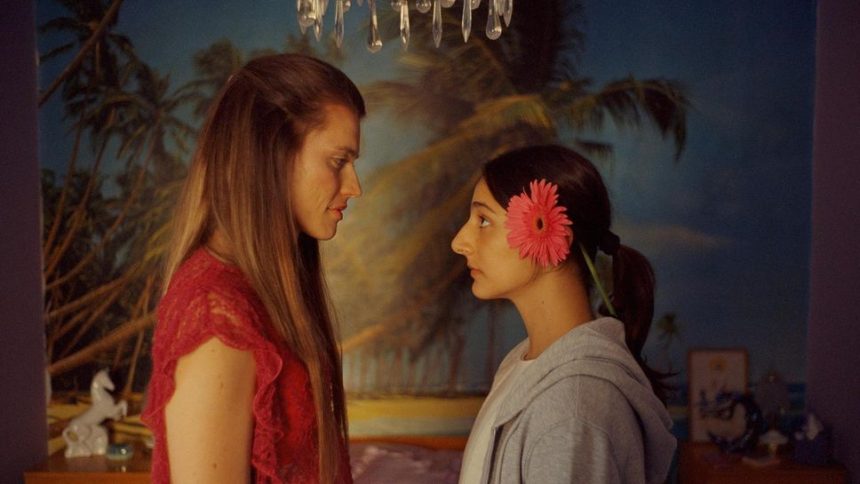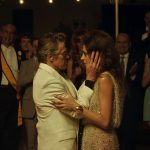‘Fantasy’ Director Kukla on Giving the “Forgotten” a Voice, the Female Body as a “Political Battleground”
Many people, particularly young women, may well benefit from a dose of fantasy and inspiration, especially if they live in a big “concrete prison” of a city in a conservative society. Just ask the three tomboys who don’t conform to societal expectations and meet a trans woman called Fantasy in, yes, Fantasy, the feature directorial debut of Slovenian musician and director Kukla.
The exploration of gender and desire, as well as journey of self-discovery, based on the filmmaker’s short Sisters, will world premiere in the Filmmakers of the Present program at the 78th edition of the Locarno Film Festival on Aug. 8.
Written and directed by Kukla, whose full name is Katarina Bogdanović, with cinematography by her partner Lazar Bogdanović, the movie is a co-production between Slovenia and North Macedonia. International sales are being handled by Totem Films.
Ahead of the premiere at Locarno, which runs Aug. 6-16, Kukla talked to THR about the inspirations for Fantasy, patriarchal societies, working mostly with first-time actors, and how the female body is still “a political battleground.”
You Might Also Like
Before I ask you about the movie, can I ask where the name Kukla comes from?
My birth name is Katarina, but I have a mixed background of Macedonian parents and Slovenian roots. In Macedonian, “kukla” is a doll. That’s how they call you when you’re a little girl. But they kept calling me that for years. For online stuff, you had to give yourself a nickname, and I naturally gave myself that nickname, because everybody had been calling me that for years. It somehow stuck.
Well, then the little feminist in me felt this is quite similar to the position of a woman in the Balkans. When you’re super sweet and we can play with you, you’re a doll, a toy. And we put you back on the shelves when we don’t want to play anymore. So then I was like, “Oh, my god, yeah, this has to be it.”
The role of women is also a key theme of Fantasy. What was your inspiration for the film and the short Sisters that you made and based the feature on?
The idea for Fantasy came about when I was directing a music video for a local alternative band. I see pictures all the time. When I write, I see pictures of actions, and then I hear people talk. So, pictures came about, memories of girls who were kind of stuck in their position in the family, in the world, in their femininity. From my childhood, I remember those girls who had their ponytails stuck in their T-shirts and were just the forgotten ones, in a way. And then I just developed that idea. But since I had just finished film school and I’d only done a short film, I didn’t know how to do a feature. So, then I thought, “Okay, let’s do a short film that is actually a case study for a feature film.” I wanted to create and discover the universe that I’m talking about.
How did you cast the short and feature?
I started to do street castings and found the girls, and then I also found some boys, and the whole cast. It was a really long process, and we were just hanging out a lot, using a lot of different methods. It didn’t even seem like directing, because it was so much about building the relationships. It’s still like a sisterhood among us. There’s just one professional actress – Mia Skrbinac, who plays Jasna. All of the others are first-time actors in the film. That’s how we built Sisters. And what started as a case study ended up really being an independent film that was also a manifesto for Fantasy, in a way.
I thought I made up these characters based on my memories, based on pictures from the past. But then I started discovering girls who actually live like that. I’d walk in the city park and see this girl, training in boxing and being really tomboyish.
A big inspiration was also the phenomenon of virdžinas in rural parts of the Balkans, especially Montenegro villages and some parts of Albania. Because of blood revenge, there were not many men left, so then a girl was chosen to carry on a male identity. She wasn’t trans, but there was a societal expectation for her. In researching that, it was fascinating to me that a lot of them hated their femininity, because they were only accepted as a son in their father’s eyes in a very patriarchal society. And I just somehow transferred this to my characters. They are like the contemporary urban versions or reincarnations.
When I was ready to make Fantasy, it started being more complex. I wanted the same people from the short for the feature. But the people who play the character of Fantasy in the short and in the feature film aren’t the same, but both are trans women. It was really important for me to have a trans woman representing a trans woman in the film. I mean men playing women has been going since Greek times, but I feel we have so many vocal trans people now, and they have to get the visibility. And it was even more important for me to find a person who actually lives her truth and would be ready and open to share it with the world.
How was it working with people who are not professional actors?
For me, it was easier to work with first-time actors, especially as a first-time feature film director. Every new project I’m dreading before starting. I’m afraid, but then I have to be brave to get into it. For me, the point was actually to find actresses and actors who had an essence of the character that I’d written and could co-create the story with me, because I always leave space for them.
Tell me a bit about the decision to name the character Fantasy and the film after her.
Even though Fantasy doesn’t play the main role, she’s so important for the three characters, because she shows them that even in the biggest concrete prison, you can have your own truth and your own freedom.
I called her Fantasy because of a few different aspects. I feel people don’t often have the bravery to live their own truth, and we are just living in our heads, in our fantasies. But she has the bravery, the authenticity, and the audacity to live her fantasy with her full lungs. The name is also a bit ironic, because I was asking myself who a woman is if not the fantasy of a woman.
The name is also inspired by this really brave trans woman from Slovenia. She’s actually Croatian, but she moved to Slovenia in the ’90s, and she was actually the first trans woman in Slovenia, openly living her identity. She chose the name Salome [meaning “peace”] for herself, which is such a good name. In the end, you can choose your way of life and your freedom. What was also interesting to me was that sometimes you meet people who are maybe not there forever, but they really change you. And that is actually what Fantasy is for the girls.
Indeed, the sisterhood between the three girls changes with the arrival of Fantasy.
Exactly. They cannot be triplets forever. They feel so unsafe in their families, in their environment and everywhere that they had to choose this way of Siamese triplets, being and dressing the same, looking the same. That is their source of strength and of belonging. But it’s only natural when you grow up that you grow apart and develop your own sense of identity. But they still have respect and love for each other.
What kind of role did you want to find for men in the film’s world?
Actually, I got two comments from men when I was writing the script. Both of them said there were no positive male characters in the film. And I was like: But I also don’t have any positive female characters in my film. Fantasy is actually the most positive. But they are all the product of their environment, and in a violent environment where you can just smell the violence and that is like a confinement, you don’t have a positive character.
I’d say the neighborhood is based on my neighborhood growing up, and it was like that. Sometimes I asked myself if I was exaggerating. But then members of the cast or extras were doing something, and they were like, “It really is like that.” I call it the post-patriarchal society, but that’s a big wish. In the post-Yugoslavia society, there are still traditionalistic values. Unfortunately, the Balkans are still a very patriarchal place, and a lot of women just aren’t seen or treated as equal members.
The role and rights of women also seem to have come under debate again in places like Europe and the U.S. again…
It often feels like right-wing people in Europe are just copying everything from the United States. And you fast forward to a few months ago, and you see that the female body is still such a political battleground, with decisions on reproductive rights and what has been happening with trans rights. Unfortunately, the world still keeps spinning in a really, really weird direction.
Is there anything else you’d like to highlight?
I was really, really working hard on representing everybody, not just the trans woman, but all the characters, in a respectful way. That’s where I carry and feel a big responsibility. I really wanted to give a voice to the unheard or the forgotten ones, in a way. I’m really thinking about what spark the film can bring to the world. So, I hope that especially the ones who feel unheard can really feel heard and seen.







